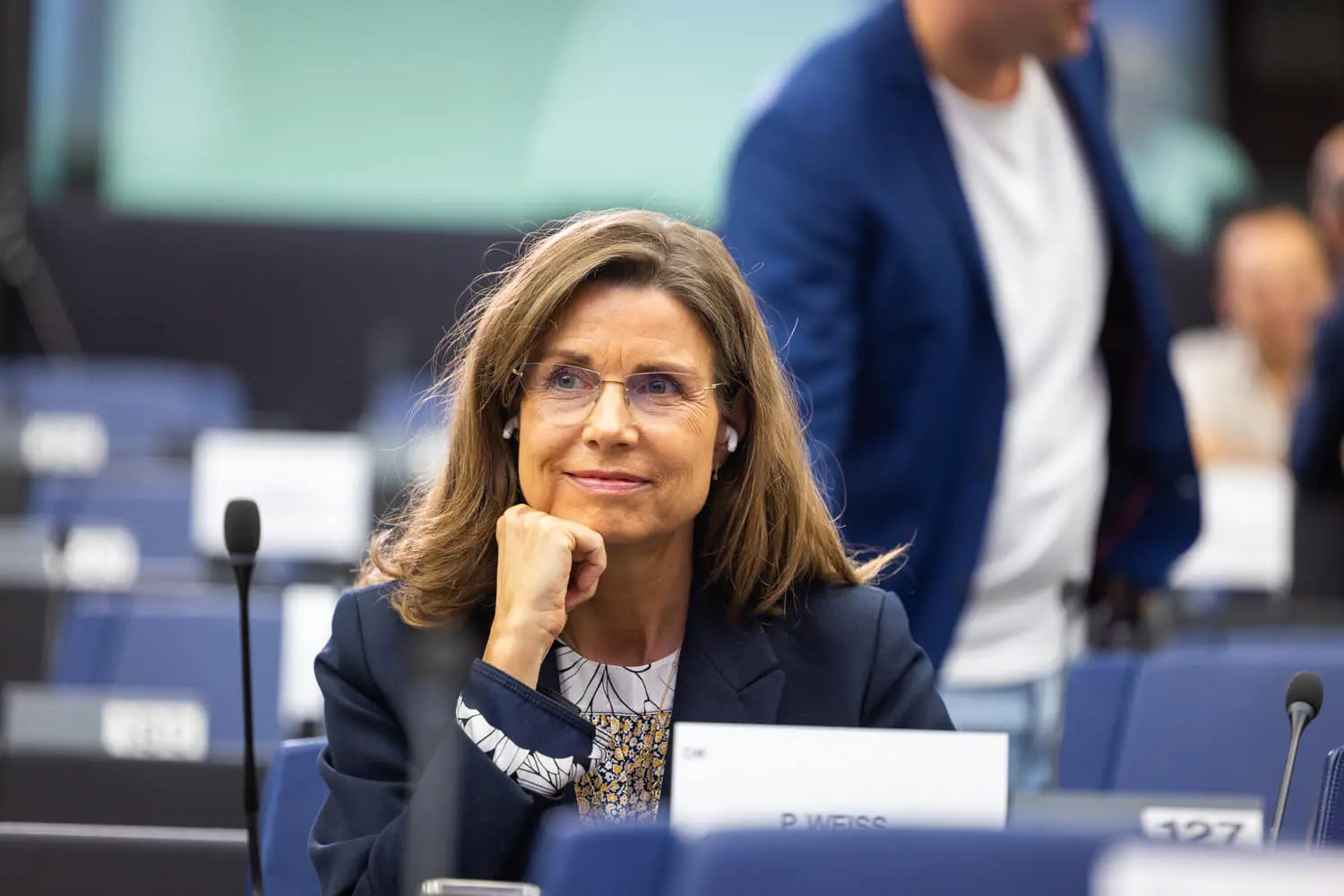
Pernille Weiss
Photo: Pernille Weiss on Facebook, October 29, 2023.
A controversial report addressing Europe’s medicine shortage is back online after a week of media fanfare over possible conflicts of interest among MEPs who are also in a romantic relationship.
Pharmaceuticals are a hot topic these days as Europe is in the midst of a chronic medicine shortage. The EU parliament is working on a major reform of pharmaceutical regulations. This initiative comes after the bloc’s recent experience with the COVID pandemic and the Deletegate scandal involving text messages between EU Commission President Ursula von der Leyen and the head of Europe’s major vaccine supplier, Pfizer.
Now into the fray stepped a little-known EU parliamentary panel, the Panel for the Future of Science and Technology. It commissioned an independent report by three Italian health economists for recommendations on increasing innovation in pharmaceutical research while simultaneously making it easier and cheaper to manufacture.
The researchers gave MEPs several options during an October 19 presentation. Their recommendations focused on limiting the length of patents, increasing bloc-wide public funding of research, joint procurement of medicines, and a more standardized approval process for new drugs across the bloc.
During the presentation, Portuguese socialist MEP and panel member Maria-Manuel Leitão-Marques, who is also responsible for the study, welcomed the recommendations while acknowledging that they were “challenging” proposals.
But center-right MEP Pernille Weiss from the EPP questioned the researchers’ methods and findings.
“Who is actually informing you, inspiring you to the conclusion?” she asked, suggesting the researchers had a hidden bias they should reveal.
She asked them several questions about how they reached their conclusions and said she had additional follow-up questions that she would send later.
Not surprisingly, the pharmaceutical industry has been lobbying MEPs hard, including meeting with both Weiss and Leitão-Marques, and the industry is also generally opposed to shortening the length of drug patents. According to Politico, Weiss is closer to the industry’s position than socialist MEPs.
A little over a week later, on Friday, October 29, the fifteen-page study–which reads more like a presentation than a formal report–became accessible to the public on the STOA website. But by Monday, October 30, it had been taken back down again; not before, though, journalists at Politico had seen it and saved a copy.
When it went missing from the website, replaced by a broken link, they wondered why.
The answers to their queries only raised more questions, as the communications office for STOA gave two different answers.
According to the first statement, “panel members” had asked for the report to be taken down. A follow-up statement said that the report’s disappearance was in no way the result of individual decisions but rather that “the publication was erroneously published before finalization.”
Internal emails show that on the Friday that the report went live on the panel’s website, Weiss sent an email to her fellow panelists asking for the study to go on hold until the researchers who produced the paper had answered her questions. Sometime after that, the study was taken down, which would have happened at the direction of Christian Ehler in his position as committee chairman. Ehler, also of the EPP, and Weiss are in a romantic relationship, according to media reports, which Ehler did not deny.
But on Monday, Leitão-Marques expressed her dissatisfaction with the report having been taken down.
“I hope that the issues accessing the study … can be solved as soon as possible,” the Portuguese center-left MEP replied to Weiss, Politico reported.
Politico published its first article on the missing report on Friday, November 3, with Ehler denying any conflict of interest and explaining that Weiss had simply invoked the panel’s rules. Other members weren’t convinced, though, and calls for an investigation into the status of the report went out on social media. The news outlet also got transparency groups to chime in, all of which expressed concerns that the romantic relationship between Weiss and Ehler, coupled with the report’s disappearance at Weiss’ request, could pose a conflict of interest.
It seems Ehler decided to end the controversy with one simple move. By Monday, November 6, the report was again available on the STOA website, along with an interview with the lead author of the report and the recording of the presentation.
Just another week in Brussels, keeping track of who is influencing the influencers.
